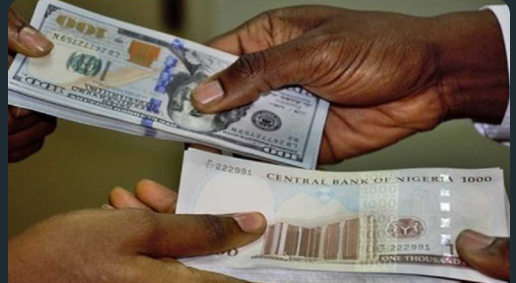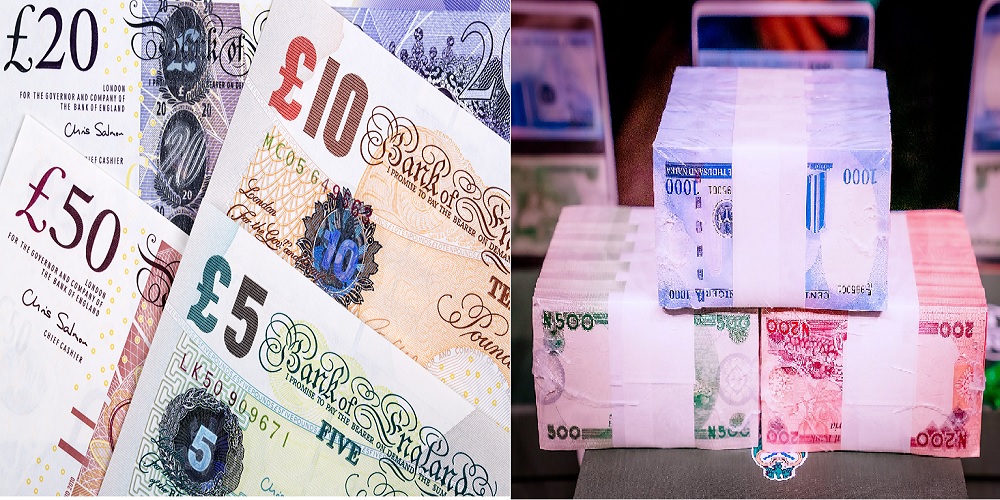Economy
BlackRock’s iShares Worth $400 Million Issues Notice to Exit Nigeria

BlackRock, one of the world’s leading asset managers, has announced its decision to liquidate its iShares exchange-traded funds (ETFs) valued at $400 million in Nigeria and Kenya. This decision comes amidst an unprofitable business environment exacerbated by challenges in currency repatriation and the significant devaluation of the naira.
BlackRock’s iShares Frontiers, which has invested substantial amounts in emerging market equities in Nigeria and Kenya, is set to cease trading by March 31, 2025. The extended liquidation period is due to the complex nature of currency conversions, particularly the naira, which poses a significant challenge in the timely liquidation of the fund.
“The board of directors of the company approved a proposal to liquidate the fund. In light of persistent liquidity challenges in certain frontier markets, including among other things, delays or limits on repatriation of local currency, the board determined that it is in the best interest of the fund and its shareholders for the fund to liquidate,” stated iShares in a recent announcement.
The devaluation of the naira and liquidity constraints have made it difficult for BlackRock to repatriate profits, impacting the timing and process of the fund’s liquidation. These issues have prompted the company to opt for an extended liquidation period, with the final cessation of trading scheduled for no earlier than August 12, 2024.
The planned exit of BlackRock’s iShares marks another significant setback for Nigeria’s economic landscape, reflecting the ongoing challenges faced by the country’s business environment. This move adds to the list of multinational companies exiting Nigeria amid economic difficulties.Guinness Leaves Nigeria After 75 Years as Tinubu’s inflation wreaks economic havoc
Already, BlackRock has liquidated $5.2 million of its shares in Kenyan companies like Safaricom ($2.8 million), Equity Group ($1.5 million), and KCB Group ($885,000), which are listed on the Nairobi Securities Exchange (NSE).
The departure of such a significant player in the financial market underscores the deteriorating business conditions in Nigeria. This development comes as President Bola Tinubu’s administration, which is just over a year old, struggles with the nation’s declining economic fortunes.
The economic outlook for Nigeria has been grim, with several high-profile multinational companies deciding to exit or scale down their operations. Diageo, the parent company of Guinness Nigeria, recently announced the sale of its controlling shares to Tolaram after posting a loss of over ₦61 billion for the financial year ending March 31. Similarly, UK pharmaceutical giant GlaxoSmithKline and tech behemoth Microsoft have also ceased their operations in Nigeria.
BlackRock’s decision to liquidate its iShares ETFs in Nigeria and Kenya highlights the severe challenges faced by businesses operating in these frontier markets. Currency devaluation, liquidity issues, and difficulties in repatriating profits have created an untenable situation for many international investors. As Nigeria grapples with these economic challenges, the government will need to address these fundamental issues to restore confidence and attract foreign investment. The exit of major multinational companies not only impacts the market but also signals the urgent need for economic reforms to stabilize the business environment and encourage investment.
Economy
SEE Today’s Black Market Exchange Rate: Dollar (USD) To Naira (NGN) – January 19, 2025

What is the Dollar to Naira Exchange Rate in the Black Market (Parallel Market/Aboki FX)?
Check out the latest black market Dollar to Naira exchange rate for January 18, 2025. You can exchange your dollars for Naira at these rates:
How much is the Dollar to Naira today in the black market?
The current black market exchange rate for Dollar to Naira (Aboki FX) is as follows:
Buying Rate: N1670
Selling Rate: N1680
These rates were obtained from sources at the Bureau De Change (BDC) in Lagos on Saturday, January 18, 2025.
Important Notice:
The Central Bank of Nigeria (CBN) does not recognize or endorse transactions in the parallel market (black market). Individuals looking to engage in Forex transactions are advised to approach their respective banks for official exchange rates.African fashion collections
Dollar to Naira Black Market Rate Today:
Buying Rate: N1670
Selling Rate: N1680
Dollar to Naira CBN Rate Today:
Highest Rate: N1559
Lowest Rate: N1545
Please note: Exchange rates may vary depending on location and negotiation terms, and the rates mentioned here are for reference purposes only.
Economy
Nigeria secures aircraft financing deal with Afreximbank

By Francesca Hangeior
A development financing institution, African Export–Import Bank, Afreximbank, has agreed in principle to collaborate with Nigeria on aircraft financing.
Afreximbank, while announcing plans to launch a leasing subsidiary, which will soon take delivery of 25 aircraft to be leased to African airlines, said it will provide Nigerian airlines with access to dry-leased aircraft that would enable them to better service Bilateral Air Service Agreement, BASA, routes and domestic operations.
A statement by Mr Tunde Moshood, special adviser on Media and Communications to the Minister of Aviation and Aerospace Development, Mr Festus Keyamo, said the partnership was achieved during a side meeting held with the Afreximbank team at the four-day Aviation Economic Conference in Dublin, Republic of Ireland.
The statement reads: “A significant milestone in Nigeria’s aviation sector was achieved during a side meeting held with the Afreximbank team at the ongoing Aviation Economic Conference in Dublin, Republic of Ireland. The meeting, facilitated by Boeing’s Senior Director of Finance, Lereece Rose, brought together key stakeholders to discuss aircraft financing opportunities for Nigerian airlines.
“The meeting was attended by the Minister of Aviation and Aerospace Development, Festus Keyamo SAN, who led the Nigerian delegation. The delegation included distinguished members such as the Chairman, Senate Committee on Aviation, Senator Abdulfatai Buhari; Chairman, House Committee on Aviation, Abdullahi Idris Garba, Chairman, Senate Committee on Banking, Insurance, and Other Financial Institutions, Senator Abiru Adetokunbo; Director General of the NCAA, Capt. Chris Najomo; Managing Director of Fidelity Bank, Dr. Nneka Onyeali-Ikpe; COO of Air Peace, Toyin Olajide; CEO of XEJet, Emmanuel Iza; Chairman, ValueJet, Kunle Soname and his Managing Director, Capt. Majekodunmi, and Chairman/CEO of Bellagio Air, Dr. Oludare Akande, among other aviation stakeholders.
“At the meeting, Afreximbank, led by its Director and Global Head of Project and Asset-Based Finance, Helen Brume, agreed in principle to collaborate with Nigeria on aircraft financing. Highlighting the bank’s extensive experience in supporting airlines such as Arik Air, Kenya Airways, and TAG over the past two decades, Brume emphasized the need for robust aviation infrastructure to enhance the competitiveness of African airlines.
“To address this, Afreximbank announced plans to launch a leasing subsidiary, which will soon take delivery of 25 aircraft to be leased to African airlines. This initiative aims to provide Nigerian airlines with access to dry-leased aircraft, enabling them to better service Bilateral Air Service Agreement, BASA, routes and domestic operations.
“Lereece Rose commended the Minister for his efforts in improving Nigeria’s aviation ecosystem, particularly in raising Nigeria’s Cape Town Convention score from 49.5% to 75.5 per cent. This progress underscores the country’s commitment to creating an enabling environment for aircraft financing and leasing.
“The Minister highlighted the critical need for partnerships that would enhance access to aircraft financing for Nigerian operators, facilitating growth and improved service delivery. In response, Afreximbank affirmed its readiness to work with the Nigerian government, signaling a promising future for the country’s aviation industry.
“A committee has been established to follow up on the discussions, ensuring that this partnership materializes into actionable solutions for Nigerian airlines.”
Economy
SEE Dollar (USD) to Naira Black Market Rate Today January 16, 2025 Aboki

As of January 16, 2025, the Nigerian Naira (NGN) has continued to experience some level of volatility against the US Dollar (USD), while this has been the norm for decades now, this largely to some extent reflects the ongoing economic challenges.
See the Naira performance across various currencies
A quick check at the parallel market at Abuja Zone 4 market,as at January 16, 2025 , the black market exchange rate stands firmly at approximately ₦ 1,663.00 per USD. This means if you want to buy a dollar now, it is ₦ 1,663.00 while if you want to sell it is approximately ₦ 1,652.00 .
Please be aware that the parallel market or the black market rates are mostly and notably higher compared with what you get from the official market or CBN rate
Dollar to Naira (USD to NGN) Black Market Exchange Rate Today
Selling Rate ₦ 1,663.00
Buying Rate ₦ 1,652.00
-

 News24 hours ago
News24 hours agoUK Court Jails 35-yr-old Nigerian 10 Yrs After Brutal R3pe Of Woman In Nottingham
-

 News7 hours ago
News7 hours agoFinally, court bars FRSC from arresting vehicles, penalizing motorists faded number plates
-

 News15 hours ago
News15 hours agoJust in: Gov Soludo reveals those behind kidnapping in SE, says it’s now a lucrative biz
-

 News7 hours ago
News7 hours agoFG Accepts New VAT Sharing Formula Proposed By Governors
-

 News24 hours ago
News24 hours agoSEE Dollar (USD) to Naira Black Market Rate Today January 18, 2025 Aboki
-

 News20 hours ago
News20 hours agoPolice declare Ex-President Jonathan’s aide , Reno Omokri wanted
-

 News17 hours ago
News17 hours agoSad! Train Crushes Man To D3ath In Oshodi, Lagos
-

 Politics17 hours ago
Politics17 hours agoJust in: Senator Nwoko reportedly dumps PDP for APC








